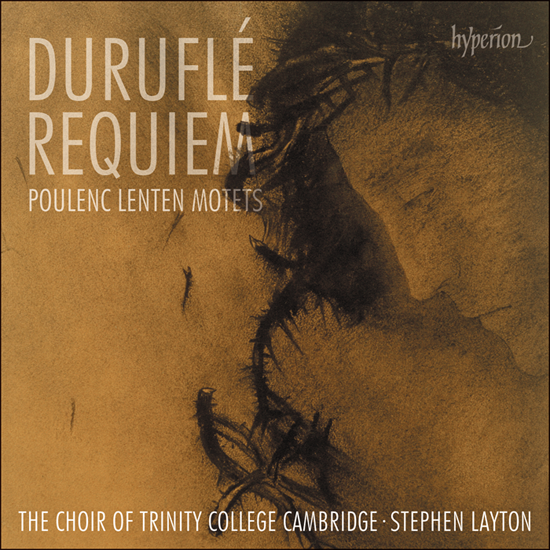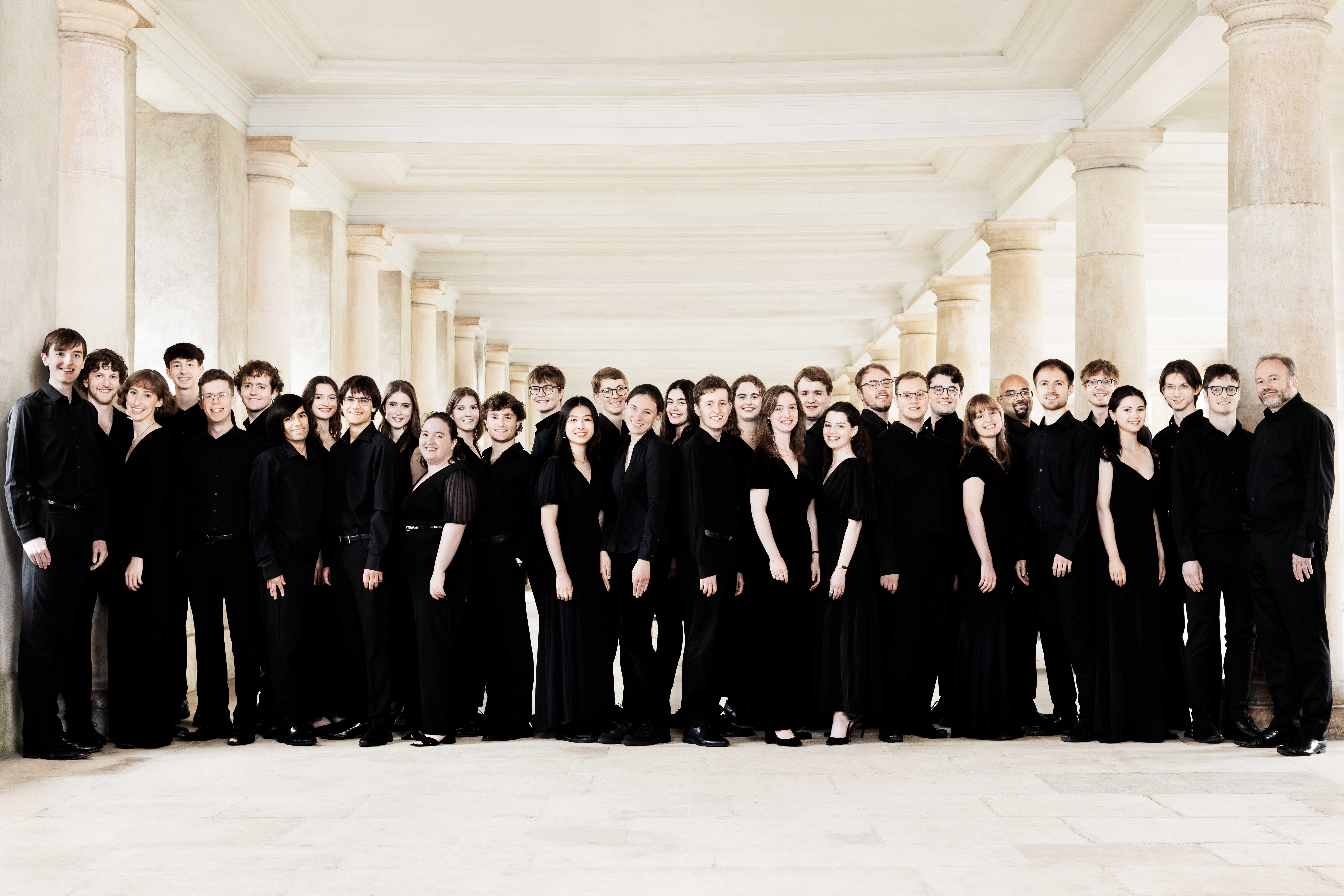Duruflé/Poulenc - Requiem & Motets - Diapason
> See recording details...“In July 2022, the Choir of Trinity College Cambridge recorded Duruflé’s Requiem in the heart of Paris, the city of his birth, for the cameras of tenor and film director Andrew Staples. A super-slick production offering flattering shots of the Church of Saint-Eustache enveloped in summer night, the faces of the young singers, the magnetic gaze of director Stephen Layton and the maturely-accomplished playing of the ‘organ scholar’ Harrison Cole, the resulting YouTube video has achieved nearly 250,000 views since publication in February 2023. The disc has taken its time to appear, but its release confirms a remarkable artistic success.
Faithful to the composer’s wish to conform to the “rhythms of Gregorian chant as set down by the Benedictines of Solesmes”, the student ensemble is attentive from the Introit attached to the Kyrie to the suppleness and natural lighting of the musical lines, to their imitative formulas and initially lively contours. The Offertoire opens in shadows before finding declamatory ardour in the Libera eas and revealing the arrestingly sombre tones of Trinity baritone Florian Störtz. Mezzo-soprano Katherine Gregory, likewise drawn from the collegiate choir’s ranks, possibly appears less free in the Pie Jesu but her dialogue with the well-phrased cello of Myrtille Hetzel, the album’s Parisienne, does not leave the listener indifferent. In this 1948 version of the work for choir and organ accompaniment, the enormous instrument of Jan Van den Heuvel roars beneath the dramatic cries of “dies illa, dies irae” in the Libera me and practically reaches the limits of its sonority in the suave concluding vocal harmonies at the end of the In Paradisum to unforgettable effect.
The success of Duruflé’s Requiem, like that of Fauré, is down as much to the efforts of our neighbours across the English Channel, if not more so, than to those of French ensembles. Layton shows himself to be an at once serene and sovereign authority over the music, a few months before leaving an ensemble whose development he has underpinned. This is verified by the candour of the a cappella singing offered as a complement on this album, with the mixed-voice choir shedding rays of light onto the Quatre motets pour un temps de pénitence of Francis Poulenc, in which the composer defies Lenten austerity on the brink of the abyss in 1938-39. There are films of these performances too, bringing images to the superbly-moving sounds.”
Benoît Fauchet

Hyperion Records CDA68436
